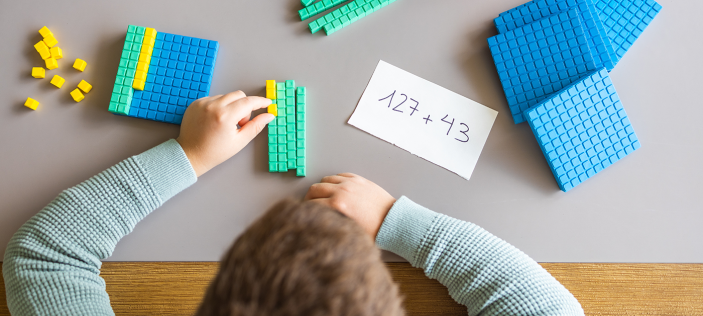
We know that teaching assistants (TAs) are fundamental in the running of our schools. They are unsung heroes and are expected to do a lot – from teaching to finding a lost pencil, from providing a ‘magic’ wet paper towel for a bumped knee to inputting data into statutory reports.
The number of teaching assistants in our schools has increased dramatically over the last 25 years and in 2015, the EEF first released a guidance report on ‘Making best use of teaching assistants’ (1) and a key finding was:
‘The typical deployment and use of TAs, under everyday conditions, is not leading to improvements in academic outcomes.’
This led to headlines stating that TAs were high cost but low impact.
Pupil attainment outcomes are important but we also know that these outcomes are not the only aspect in a child's development we want the education system to impact upon. The pastoral care that schools provide has a huge impact on children’s outcomes and successes, and I believe this is an area of school life in which TAs have a major impact.
The changing role of teaching assistants
TAs are expected to support with teaching, and increasingly to lead teaching, in classrooms.
Teaching and/or supporting with maths learning is an aspect of the role that can cause a lot of anxiety.
I work with many TAs at training events and in schools, and when they hear I am a maths adviser, I regularly get told:
“Please don’t watch me. I am not very good at maths.”
“This isn’t going to be hard, is it? I was always rubbish at maths at school.”
“Maths is different to when I was at school.”
Many of the TAs I have met or worked with don’t have great belief in their own ability in maths and don’t have positive memories of learning maths at school. I would argue that many have maths anxiety.
In a report by the Centre for Neuroscience in Education at the University of Cambridge (2), maths anxiety is defined as,
“a negative emotional reaction to mathematics, which can interfere with the ability to perform mathematical tasks.”
Does it matter if those working with pupils have maths anxiety?
On page 4 of the report on understanding mathematics anxiety (2), there are several recommendations. A number of these talk about the impact of teachers, TAs or parents with maths anxiety on the children they support.
- Teachers and parents need to be conscious of the fact that their own mathematics anxiety might influence student mathematics anxiety and that gendered stereotypes about mathematics suitability and ability might drive, to some degree, the gender gap in maths performance.
- Hence, for parents and teachers, tackling their own anxieties and belief systems in mathematics might be the first step to helping their children or students.
Therefore, it does matter.
How to support people who are anxious about maths, to work effectively with children, needs careful consideration.
Teaching Assistants: Subject Knowledge in Primary Maths Webinars 2024/25
Enabling greater pupil independence

Scaffolding framework for teaching assistant – pupil interactions
Making Best Use of Teaching Assistants, EEF
The idea of the framework is to ensure that TAs interact with pupils in a way that enables greater pupil independence. Teachers have the responsibility to set tasks with the correct level of challenge, and TAs should observe and then provide support.
This may involve suggesting self-scaffolding and if more support is needed, moving down through the layers. The further down the layers, the greater the need for dependence on an adult or learnt helplessness.
Sadly, I see and hear about many pupils who are highly dependent on adults and have very little independence.
If this is a model that is known to work, why are so many pupils dependent on an adult in maths lessons?
I would argue that this could be for several reasons.
One is that tasks are not being set with the correct level of challenge, considering pupils’ prior knowledge.
Another is that the support provided starts at the bottom of the triangle – with correcting or showing.
I think, on many occasions, this is due to TAs not feeling confident to prompt, give clues or provide a model that helps to explain the mathematical concept being taught. However, they want the pupil to feel successful and to get the answer correct. They may also want to mask their own anxiety.
Going back to the comments I often get from TAs I meet, especially the one about maths being ‘new and different’…
Maths as a subject hasn’t really changed – the number system is the same and calculations are no different either, but I would agree that maths teaching has changed.
If I think about the maths I was taught at school, and even how maths was taught when I was training to be a teacher, it was different. The focus now is on conceptual understanding, and learning how and why strategies work, rather than simply learning a formula or process and applying it.
What can be done to support teaching assistants who are feeling anxious about maths?
In the EEF guidance report (in part 4 of the summary of recommendations) (1), it states:
During lesson preparation time, ensure TAs have the essential ‘need to knows’:
- Concepts, facts, information being taught
- Skills to be learned, applied, practised or extended
- Intended learning outcomes
- Expected/required feedback.
This is a lot.
Teachers are time-poor and budgets and working arrangements often mean that teachers and TAs don’t have time to meet for this purpose. If a TA’s subject knowledge is insecure, they are anxious about maths and there’s a lack of time to prepare, supporting maths teaching can become overwhelming.
Developing subject knowledge in maths
Providing support and training to develop subject knowledge would be a good first step to build self-confidence.
As listed in ‘ten reasons to improve the use of teaching assistants’(1), “Upskilling TAs raises their professional profile and status and makes them feel more valued.” It also provides them with the knowledge, skills and vocabulary to provide prompts, clues and models that support pupils’ independence.
In an article by Cambridge Mathematics (3), high quality CPD / training is included in the “Virtuous Cycle”. This has been created by looking at what research suggests about effective utilisation of TAs in the maths classroom specifically. It recommends that,
“schools should consider the value of maths-specific training and professional development for TAs supporting mathematics lessons”.
A workable, cost-effective solution
The primary maths team at HFL recognise the need for high quality CPD for TAs, but we also recognise that school budgets are tight and releasing people can be tricky. So we have come up with a workable solution.
We are putting on a series of six 1-hour webinars over the autumn and spring terms.
Teaching Assistants: Subject Knowledge in Primary Maths Webinars 2024/25
Each session will focus on a domain of maths learning, for example, numbers, multiplication and division, fractions or geometry. Sessions will increase subject knowledge and conceptual understanding across the maths curriculum and provide practical ideas to take away and use straight away in the classroom.
The cost of the six-session package starts from £45 for one TA; only £7.50 per session.
We are keen to enable as many TAs to access this training as possible.
The cost for 2-5 TA places is £120. So if 5 TAs access the training, that works out at £4 per TA per session.
We appreciate it may not be possible to release 5 TAs at the same time so all sessions will be recorded and will be available to watch at any time.
For more information about the training and to book places, please visit the HFL Education Hub
References
EEF (uploaded 2021) making best use of teaching assistants guidance report
EEF (uploaded 2021) Scaffolding framework for teaching assistant – pupil interactions
EEF (uploaded 2021) Ten reasons to improve the use of Teaching assistants
Making Best Use of Teaching Assistants | EEF (educationendowmentfoundation.org.uk)
Carey, E., Devine, A., Hill, F., Dowker, A., McLellan, R., & Szucs, D. (2019). Understanding Mathematics Anxiety: Investigating the experiences of UK primary and secondary school students. Centre for Neuroscience in Education. https://doi.org/10.17863/CAM.37744
Espresso research, filtered by Cambridge mathematics (2019) A possible ‘feedback loop’ model for the practice of teaching assistants. Teaching assistants in mathematics learning (cambridgemaths.org)



